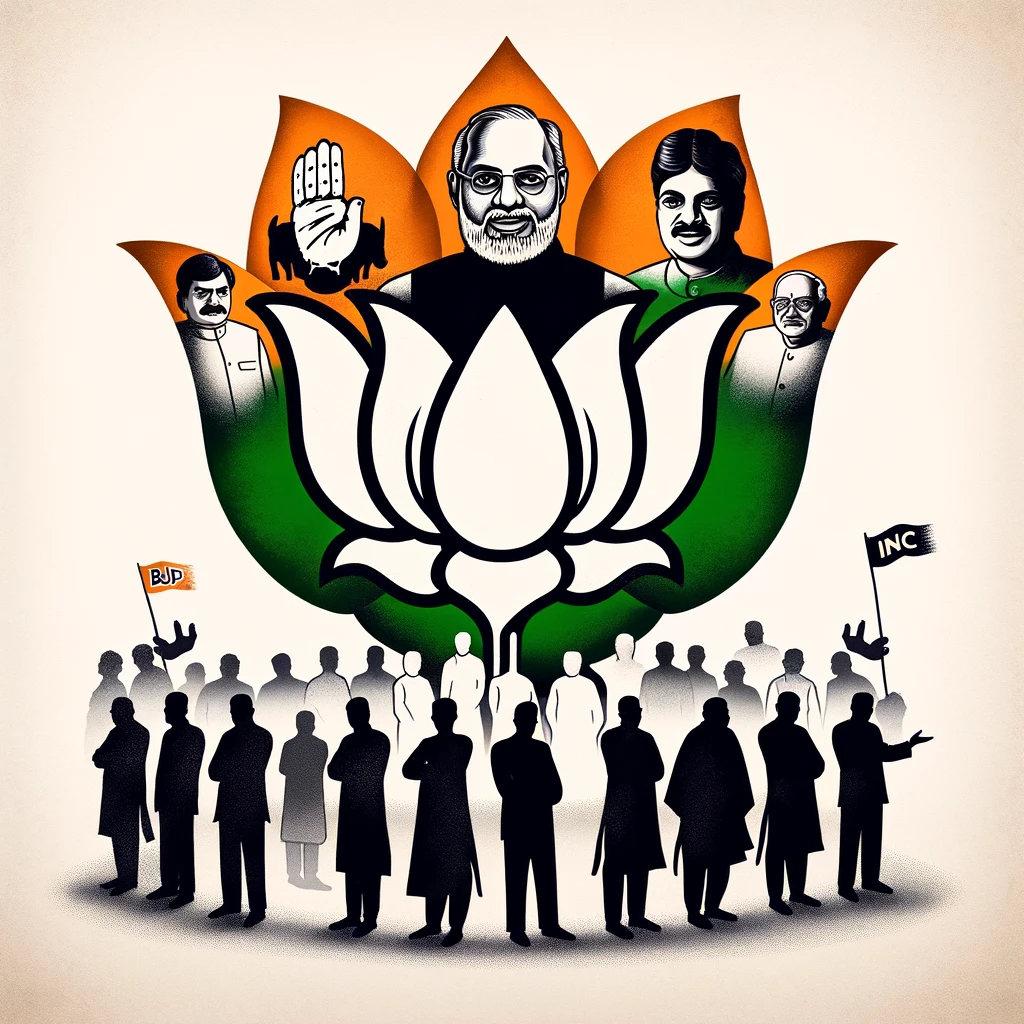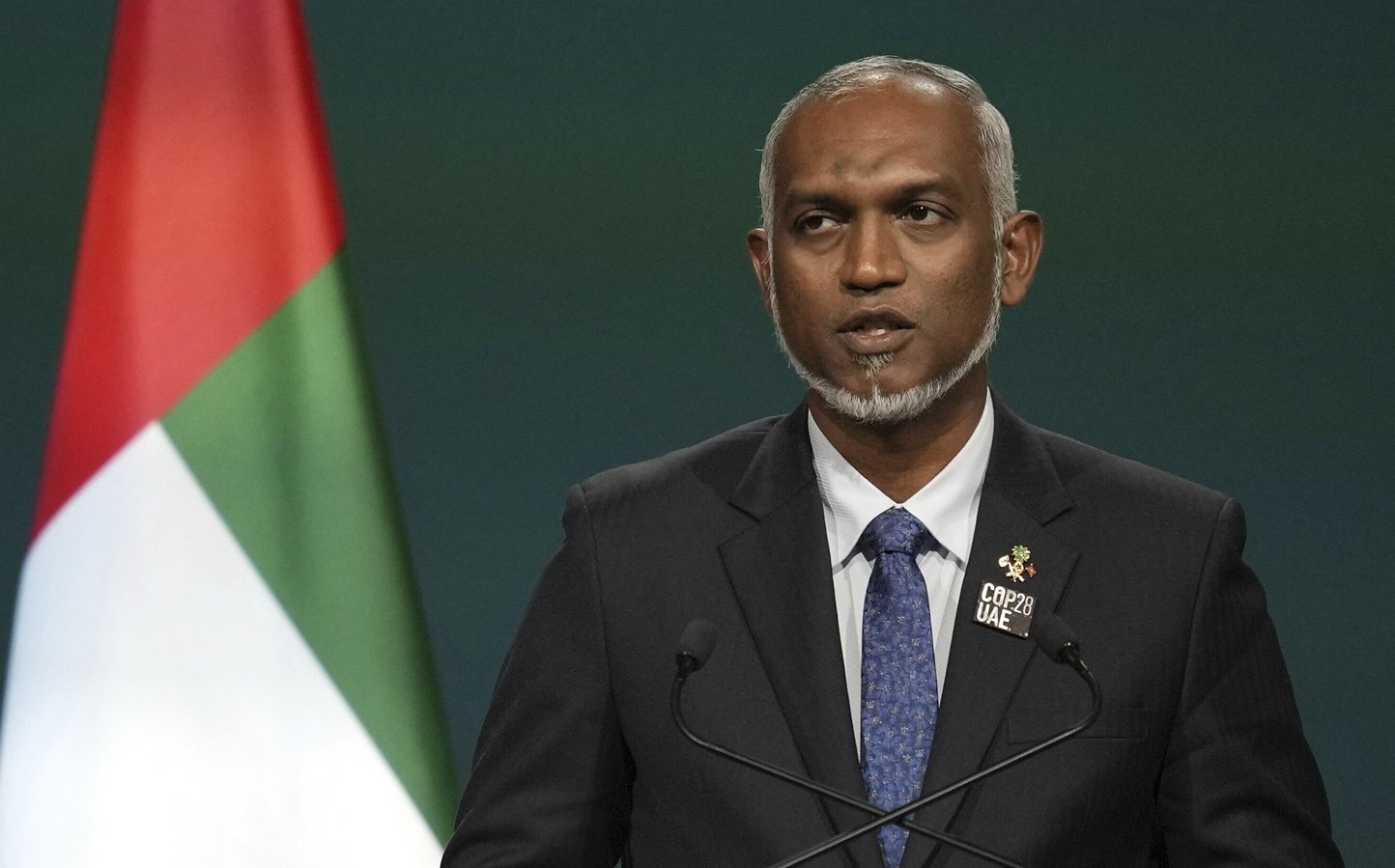In a landmark decision that has sent ripples through the corridors of power, the Supreme Court of India recently directed the Election Commission of India (ECI) to make public the details of electoral bonds purchased and redeemed by political parties. This move, aimed at ensuring transparency in political funding, has unveiled some startling figures and raised eyebrows across the nation.
Electoral Bonds: Who’s Cashing In?
The ECI’s data dump is a treasure trove for anyone curious about the flow of money in Indian politics. Topping the charts is the ruling Bharatiya Janata Party (BJP), which encashed a whopping Rs 6,986.5 crore in electoral bonds. The peak of this financial bonanza came in 2019-20, with a staggering Rs 2,555 crore pouring into its coffers.
Not to be left behind, the Congress party redeemed bonds worth Rs 1,334.35 crore, while regional heavyweights like the Biju Janata Dal (BJD), YSR Congress, and Telugu Desam Party (TDP) cashed in Rs 944.5 crore, Rs 442.8 crore, and Rs 181.35 crore, respectively. Even the DMK got a slice of the pie, with a generous Rs 656.5 crore, including a jaw-dropping Rs 509 crore from the controversial lottery king Santiago Martin’s Future Gaming.
According to ECI data released on Sunday, below is a party-by-party breakdown of electoral bond funding:
The Bharatiya Janata Party (BJP): Sitting pretty at the top of the money tree, the BJP encashed election bonds worth a whopping ₹6,986.5 crore, with a bumper harvest of ₹2,555 crore in 2019-20 alone.
The Trinamool Congress (TMC): Not to be left too far behind, the TMC pocketed a cool ₹1,397 crore through electoral bonds, snagging the second spot in the funding race.
Congress: The grand old party of India redeemed a respectable ₹1,334.35 crore in electoral bonds, making it a close third in the financial fiesta.
Bharat Rashtra Samithi (BRS): Coming in fourth, the BRS cashed in bonds worth ₹1,322 crore, showing they’re no slouches in the funding department.
The Dravida Munnetra Kazhagam (DMK): The southern powerhouse received ₹656.5 crore in electoral bonds, with a notable contribution of ₹509 crore from the “Lottery King” Santiago Martin’s Future Gaming.
The Samajwadi Party (SP): A bit further down the list, the SP received ₹14.05 crore via electoral bonds, followed closely by the Akali Dal with ₹7.26 crore and the All India Anna Dravida Munnetra Kazhagam (AIADMK) with ₹6.05 crore. Meanwhile, the National Conference managed to gather 50 lakh.
The Biju Janata Dal (BJD): Not to be outdone, the BJD cashed in electoral bonds worth ₹944.5 crore, while the Yuvajana Sramika Rythu Congress Party (YSR Congress) and the Telugu Desam Party (TDP) brought in ₹442.8 crore and ₹181.35 crore, respectively.
The Frugal Few: On the other end of the spectrum, filings by the Bahujan Samaj Party (BSP), Communist Party of India (CPI), Communist Party of India (Marxist) (CPI (M)), and All India Majlis-e-Ittehadul Muslimeen (AIMIM) revealed a big fat zero in earnings from electoral bonds.


Electoral Bonds: Top 10 Donor List
The top 10 buyers of electoral bonds from April 2019 to January 2024 are like the VIP section of a political funding party. They’ve splashed out a whopping Rs 4,200 crore, which is a cool 34.5% of the total bond bash. And guess what? They’re all corporate bigwigs! Talk about putting your money where your politics is!
Let’s dive into the world of electoral bond shopping with some juicy details:
Big Spenders on the Block:
- Lakshmi Mittal, our steel tycoon, casually dropped Rs 35 crore on bonds.
- Vedanta Ltd went on a shopping spree with a hefty Rs 398 crore.
- Bharti Airtel’s trio of firms chipped in with a cool Rs 246 crore.
- Future Gaming and Hotel Services hit the jackpot with a staggering Rs 1,350 crore in bonds.
- Megha Engineering, the infrastructure giant, made a bold move with bonds worth Rs 966 crore.
Total Donors:
A grand total of 213 donors joined the electoral bond fiesta, each shelling out over Rs 10 crore.
Party Time for Political Parties:
BJP, Congress and Samajwadi Party were the belles of the ball, receiving hefty donations through these bonds.
Notable Personalities Dipping Their Toes:
Kiran Mazumdar Shaw, Varun Gupta, B K Goenka, Jainendra Shah, and not one, but two Monikas (just the first name, keeping it mysterious) all made their mark with donations.
Corporate Carnival:
The corporate world wasn’t shy, with big names like Spicejet, IndiGo, Grasim Industries, and a whole host of others from various sectors joining the party.
Yashoda Super Speciality Hospital, with a penchant for the number 162, mostly went for the Rs 1 crore bond option.
Top 30 Chartbusters:

- Bajaj Auto: Bought bonds worth Rs 18 crore.
- Bajaj Finance: Bought bonds worth Rs 20 crore.
- IndiGo Firms: Three firms purchased bonds worth Rs 36 crore.
- Rahul Bhatia of IndiGo: Bought bonds worth Rs 20 crore.
- Qwik Supply Chain Pvt Ltd (Mumbai-based): Bought bonds worth Rs 410 crore.
- Haldia Energy: Bought bonds worth Rs 377 crore.
- Future Gaming and Hotel Services – Rs 1,368 crore
- Megha Engineering and Infrastructure Ltd – Rs 966 crore
- Vedanta Ltd – Rs 400 crore
- Bharati Group – Rs 247 crore
- Essel Mining and Industries Ltd – Rs 224 crore
- Western UP Power Transmission – Rs 220 crore
- Keventer Foodpark Infra Ltd – Rs 194 crore
- Madanlal Ltd – Rs 185 crore
- DLF Group – Rs 170 crore
- Utkal Alumina International – Rs 145.3 crore
- Jindal Steel and Power Ltd – Rs 123 crore
- Birla Carbon India – Rs 105 crore
- Rungta Sons – Rs 100 crore
- Dr Reddy’s – Rs 80 crore
- Piramal Enterprises Group – Rs 60 crore
- Navyuga Engineering – Rs 55 crore
- Shirdi Sai Electricals – Rs 40 crore
- Cipla Ltd – Rs 39.2 crore
- Lakshmi Niwas Mittal – Rs 35 crore
- Grasim Industries -Rs 33 crore
- Jindal Stainless – Rs 30 crore
- Bajaj Auto -Rs 25 crore
- Sun Pharma Laboratories – Rs 25 crore
- Mankind Pharma – Rs 24 crore
The SBI disclosed that a total of 22,217 electoral bonds were bought between April 1, 2019, and February 15, 2024, with most being redeemed by political parties.
And the list goes on, with Jindal Steel, Birla Carbon, and many more making it rain with their contributions.
It’s like a never-ending parade of generosity (or strategic investment, depending on how you see it). So, there you have it!
The Plot Thickens: The Curious Case of Future Gaming
Speaking of Future Gaming, this lesser-known Coimbatore-based gaming company which dabbles in lottery, has raised more than a few eyebrows. Not only did it contribute a hefty sum to the DMK, but it also bought electoral bonds worth over Rs 1,368 crore under different company names. This revelation is particularly intriguing given the company’s recent probe by the Enforcement Directorate. It begs the question: What’s the story behind this mysterious benefactor?
Between April 12, 2019, and January 24, 2024, the company—founded in 1991 by Santiago Martin, dubbed the “Lottery King” of India—contributed ₹1,368 crore in electoral bonds. Since starting his career in the lottery industry at the age of 13, Martin has amassed a sizable marketing network in India that includes both lotto buyers and vendors.
He currently serves as President of the All India Federation of Lottery Trade and Allied Industries leading a coalition that advocates for lottery agents, stockists, and distributors. Future Gaming is present in 13 states where lotteries are legal, through subsidiaries like Martin Karnataka and Martin Sikkim Lottery, and employs over 1,000 workers.
The Good, the Bad, and the Ugly of Electoral Bonds
Introduced in 2017 by then Finance Minister Arun Jaitley, electoral bonds were touted as a means to ensure transparent political funding. These bonds, issued exclusively by the State Bank of India (SBI), allow individuals and corporate entities to donate to political parties anonymously. On paper, this sounds like a step towards cleaner politics, but the reality is a bit more complex.
Now, Let’s Get to the Pros:
Anonymity: Donors can contribute without fear of reprisal or pressure from political parties.
Transparency: The banking channel ensures a trail of the money, albeit a concealed one.
Reduction in Black Money: By encouraging donations through formal channels, electoral bonds aim to curb the flow of unaccounted cash in politics.
The Cons:
Opaque Transparency: The anonymity clause means the public has no idea who’s funding whom, raising concerns about potential quid pro quo arrangements.
Disproportionate Advantage: The data suggests that the ruling party tends to be the biggest beneficiary, raising questions about the fairness of the system.
Selective Disclosure: While the recent Supreme Court verdict has shed some light, the full picture of political funding remains in the shadows.
A Global Perspective: How Do Other Countries Handle Political Donations?
Looking beyond India’s shores, there’s a variety of approaches to political funding:
United States
Political Action Committees (PACs): PACs are organizations that collect contributions from members and donate them to candidates, parties, or causes. They have contribution limits and are subject to strict reporting requirements.
Super PACs: These are a newer type of PAC that can raise and spend unlimited amounts of money to advocate for or against political candidates, though they cannot directly coordinate with the candidates or their campaigns. Super PACs must disclose their donors to the Federal Election Commission (FEC), ensuring a level of transparency.
Disclosure Requirements: Both PACs and Super PACs are required to report their donors and expenditures, providing transparency in political funding. However, there are concerns about “dark money” in politics, where certain nonprofit organizations can influence elections without disclosing their donors.
Germany
State Funding: Political parties in Germany receive state funding based on the level of support they have among the public. This is measured by the number of votes they receive in elections and the amount of private donations they attract.
Matching Funds: The state provides matching funds to a certain extent for the private donations that parties receive, incentivizing small donations from a broad base of supporters.
Limits on Private Donations: There are caps on how much individuals and organizations can donate to political parties, reducing the potential influence of wealthy donors.
Transparency: Political parties are required to publish annual financial reports, which include details of their state funding, private donations, and expenditures.
Canada
Donation Limits: Canada has strict limits on the amount that individuals can donate to political parties, candidates, and third-party advertisers. These limits are designed to prevent undue influence by wealthy donors.
Prohibition on Corporate and Union Donations: Corporations and unions are generally not allowed to make political donations at the federal level, further reducing the potential for undue influence.
Transparency Rules: Political parties and candidates must disclose the sources of their funding and how they spend their money. This ensures accountability and allows the public to see who is funding political campaigns.
Tax Credits: Individual donors can receive tax credits for their political contributions, encouraging small donations from a broad base of supporters.
In summary, while the approaches vary, the common themes in these countries are efforts to reduce the influence of big money in politics, ensure transparency in political funding, and encourage broad-based public support for political parties.
The Way Forward: Striking a Balance
The debate over electoral bonds is a microcosm of the larger struggle between transparency and privacy in political funding. While the recent Supreme Court verdict is a step in the right direction, there’s still a long way to go in ensuring that the system is fair, transparent, and conducive to a healthy democracy. Perhaps it’s time for India to take a leaf out of the global playbook and explore a hybrid model that combines the best of both worlds. After all, in the great dance of democracy, every step counts, and every voice matters.
Feast on this morsel of political irony: The BJP-led NDA, reigning supreme over a whopping 17 states and union territories, has raked in a staggering 6000+ crore. Meanwhile, the “one-state wonders” like the DMK, BRS, and TMC are giving them a run for their money with their own colossal electoral bond treasures. It’s a financial arms race where the size of your turf doesn’t always match the weight of your wallet!




